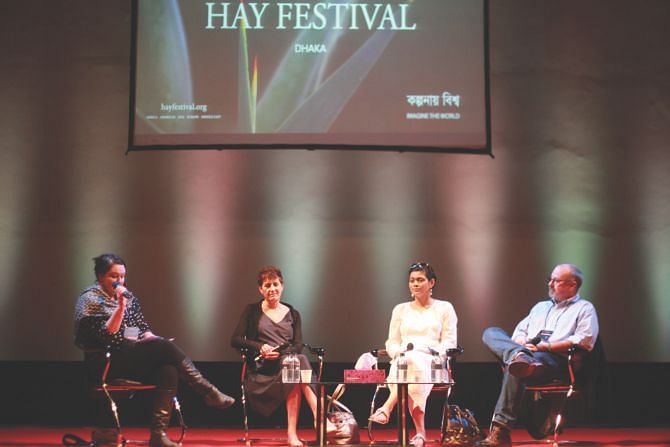Lessons from the Slush Pile

As the first day of the Hay Festival progressed, sessions and talks were being hosted in every corner, enlightening crowds of every generation. One particular session was very insightful for modern day aspiring writers. Chaired by Olivia Smith, the session was titled “Lessons from the Slush Pile”. In publishing, the slush pile is the set of unsolicited query letters or manuscripts sent either directly to the publisher or to literary agent by authors, or to the publisher by an agent not known to the publisher.
Alexandra Pringle, Group-Editor-in-Chief of Bloomsbury, Meru Gokhale, Editor-in-chief of Literary Publishing, Random House India, and Dwight Garner, book critic turned author, were present in the panel to discuss what they, as editors and critics, have learned from the years of experience being a part of this industry.
“What we usually look for amongst what we get in a slush pile, or anywhere else, is that moment when we feel like we're falling in love while reading. I don't believe in any 'movement' in literature. I feel like a good book will make me fall in love with it on its own,” said Alexandra Pringles when asked about what she usually looks for in a manuscript in order to want to publish it.
She argued that no editor would want to edit a book that he or she doesn't love or cannot connect with. “There is also the necessity of knowing what your company wants. It's not all about what I fall in love with, it also has a lot to do with whether the company will like it too,” elaborated Alexandra.
Meru Gokhale, on the other hand, said that she looks for whether the books speak to her. “I try to find a voice within the words written. And when it's that good, even just one good manuscript in the slush pile is worth editing and publishing. I am literally scared of books with wonderful words that aren't leading me anywhere,” she said.
Even Dwight Garner spoke about how he wouldn't go through a book to even critique it if he doesn't feel a connection.
The trio spoke about globalisation in literature and how even when books have been translated, there is a chance of books being liked more in one country in comparison to others. “Of course there are translated books that are enjoyed everywhere, like some of Paolo Coelho's works, but it's still a risk when it comes to editing a translated book. You have to judge the universality of the book before making any decision,” said Meru Gokhale. According to Alexandra, Bloomsbury publishes just six translated books per year.
As mentioned in the session, all three agreed that being an editor is a quite a tough job. “Judgement is not a science. You have to just express what you feel and how the book makes you feel. Sometimes you can edit a book that you love and it will not be published, and it leaves you with this regret,” said Alexandra Pringle.
When the question and answer session began between the audience and the speakers, many young writers asked for the editors' opinions on writing and future writers. One advice for aspiring writers to take away was of conclusions and what editors expect of them. “When you read too many dramatic endings, it gets exhausting. You sometimes want something that quietly blows you away. Sometimes, the quietest endings are the best,” Alexandra Pringle shared.
Meru Gokhale added, “It depends on whether it left you wanting more. You don't want to give everything away and wrap up the whole story; you want to quietly end with the
readers wanting to read further.”
And just like that, the session left us wanting more.

 For all latest news, follow The Daily Star's Google News channel.
For all latest news, follow The Daily Star's Google News channel. 



Comments